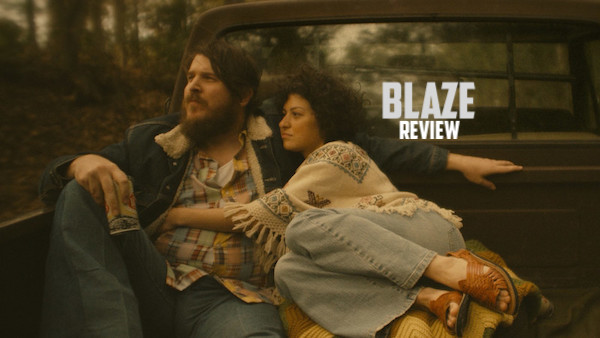Blaze: A Sweetly Poetic Elegy
Ethan Hawke delivers a poetic ode to country-western legend Blaze Foley, who died penniless at the age of 39 and vanished into relative obscurity. Blaze is a wild, sweetly beautiful portrait that meanders like one of Foley's drunken musings.
With Blaze, Hawke explores the duality of the titular character, highlighting his innate tenderness, generosity, and loving nature and juxtaposing it against his unruly self-sabotaging tendency and distorted whisky-fueled rage. Through intimate, unobtrusive direction, Hawke pierces through the core of what Foley has left behind, which entertains just as much as it enlightens many to this near-forgotten icon.
Accentuated with poetic images and introspective folk-country tunes, Blaze plays like a group of drunken buddies telling stories of their dearly departed friend, troubled lows and soaring highs and everything in between. As far as music films go, it's the best thing since the Cohen's Inside Llewyn Davis and offers a rich soundtrack of songs stripped down to the elemental that will give Llewyn a run for its money.
The film is anchored by two authentic performances from newcomer Benjamin Dickey as Blaze Foley and Alia Shawkat at peak form as Foley's ex-wife and muse, Sybil Rosen. Their relationship is touching and lived-in, and it radiates off the screen with a loving warmth that is heightened by Steve Cosens' beautiful cinematography. Dickey is wholly captivating in his portrayal and embraces the role with care and effortlessness, embodying Foley in total from his polio-induced limp to his grizzled sugary voice.
Outside of the phenomenal leads, Blaze is bursting through the duct-taped seams with colorful characters and quality acting. Providing support is Charlie Sexton (as Townes Van Zant) and Josh Hamilton (as Zee, one of Blaze’s friends) with cameos peppered throughout from the likes Sam Rockwell, Wyatt Russell, Steve Zahn, Kris Kristofferson, Richard Linklater, and even Hawke himself.
My main grievances with the film are its runtime and pacing, which lose steam as it nears the end, and its lack of major conflict. We see a lot of the good side of Sybil and Blaze's relationship, but not so much of its unravelling, which seems to be mutual, and Foley's career mishaps are all self-inflicted, with the man v.s. self theme not resonating as much as films like Llewyn Davis. However, these are relatively minor in the grand scheme of things and are outweighed by the grade-A performances and southern period milieu that Hawke and company cultivate.
All in all, Hawke's sweetly poetic elegy brings the Duct Tape Messiah back to life and will doubtlessly draw new fans toward Blaze's small collection of timeless tunes. Foley always aspired to live on as legend, and Hawke's vision has helped to etch Blaze Foley's name in a place that will be harder to fall back into the arms of obscurity. Definitely check this musical biopic out when you can.
Rating: 4 clay pigeons outta 5.
What'd you think? How did Blaze work for you? We want to know. Share your thoughts and feelings in the comments section below, and as always, remember to viddy well!


